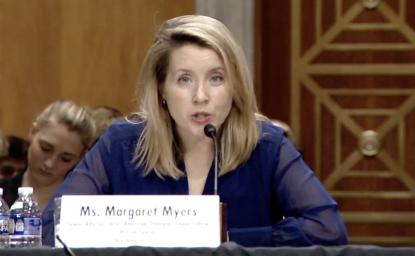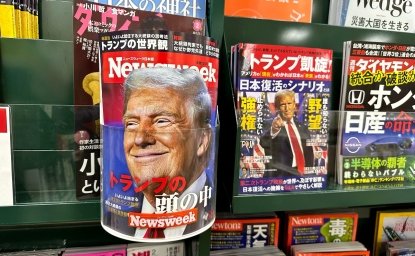The Month in U.S.-China Relations
中美关系月报
January, 2014
Beginning in 2014, The Kissinger Institute on China and the United States (KICUS) will issue a monthly newsletter on U.S.-China relations. It is written for supporters in the Washington region, across the country, and around the world who are interested in Sino-American relations but are unable to commit hours each day to following them. KICUS can’t absorb all of the worthwhile English- and Chinese-language material that is now available, but through close attention to the daily flow of news and analysis, and by aggregating the aggregators, we will offer readers a provocative summary of major developments on U.S.-China relations.
从2014年起,基辛格中美关系研究所将会每月定期发布中美关系时讯简报。该简报将面向所有关心中美关系或未能时时关注中美动态的国内外基辛格研究所支持者。或许我们未能将所有中美大事一一囊括于简报中,但我们希望通过网罗中美关系大事,聚合新闻时事和透视政策走向呈现给读者一份关于中美关系主要动向和发展的月度总结。
In line one of the Analects, Confucius urged readers to translate study into action at the proper time. The Scottish philosopher John Macmurray wrote that “All meaningful knowledge is for the sake of action, and all meaningful action for the sake of friendship.” The KICUS twist on Confucius and Macmurray is that we study U.S.-China relations in order to improve policy and inform public perceptions in both countries, and that the measure of successful policy is peace on mutually acceptable terms (even if friendship sometimes eludes us). Our readers cooperate with Chinese partners in a range of fields. We hope this newsletter helps them achieve their goals. We invite them to send suggestions for this newsletter to: china@wilsoncenter.org.
在《论语》的开篇第一句,孔子鼓励读者在合适的时机践知于行。苏格兰哲学家麦慕理也曾写道,”求知的全部意义在于践行,而践行的全部意义在于友谊。” 基辛格中美关系研究所将两者统一。 我们相信研究中美关系正是为了更好地制定政策和促进中美关系的公共认知。并且,我们同时认为衡量一个政策成功与否的准绳在于互相和平。我们的读者在广泛领域与来自中国的专家和机构合作。我们希望该简报能助您达成目标。与此同时,为使基辛格中美关系研究所更好地履行使命,我们真诚地欢迎各方建议与意见。来信请至china@wilsoncenter.org.
Major Issue Tracker
America’s Rebalance
- U.S. Adding 800 Troops for South Korea Citing Rebalance (January 7): 800 new troops from Fort Hood, 40 Abrams tanks and 40 Bradley Fighting Vehicles arrived in South Korea as part of the American rebalance to the Asia-Pacific…Read More >>
China as an Emerging Superpower
- China Asserts Control Over Vast Sea Area, Angering Neighbors, U.S. (January 10): China announced that existing laws requiring foreign vessels to report to China and comply with its rules before fishing in most of the South China Sea would go into effect. Following China’s November 2013 announcement of an air defense identification zone over the East China Sea, the announcement on fisheries is widely viewed as another sign that China is asserting sovereignty over its “near seas,” most of which are defined as international waters under the UN Convention on the Law of the Sea…Read More >>
- See Also 海南:外国人、外国渔船进入管辖水域作业需经批准
- China Urges South Sudan Ceasefire as Peace Talks Stutter (January 6): While visiting South Sudan, Chinese Foreign Minister Wang Yi called for an immediate ceasefire between Sudanese and South Sudanese forces. China, the biggest investor in South Sudanese oil fields, has long opposed commenting on the internal affairs of other countries. That policy may be evolving as China’s international interests and influence expand…Read More >>
- China’s Far Seas Presence Enables it to Escort Syria’s Chemical Weapons Marked for Destruction (January 10): Acting under UN Security Council Resolution 2118, the People’s Liberation Army Navy guided missile frigate Yancheng escorted Russian ships removing chemical weapons from Syria. It was China’s first mission in the Mediterranean…Read More >>
Sino-U.S. Cooperation
- Chinese-led International Mission to Explore South China Sea for Oil (January 27): Geologists from ten countries and regions, including Taiwan and the Philippines, sailed on the American ship Joides Resolution for a 62-day drilling expedition in the South China Sea. The expedition was proposed (and 70% funded) by China under the International Ocean Discovery Programme established by the U.S.…Read More >>
Trade & Economic Relations
- Chinese Business to Put Plant at Former Ohio GM (January 10): China’s Fuyao Glass Industry Co. announced that it would build a plant in Ohio on an old General Motors site, bringing USD 200 million in investment and 800 new jobs to the area over three years. Look for more stories of this sort as Chinese direct investment in the U.S. increases (see the Rhodium Group report cited below)…Read More >>
- SEC Judge Bars "Big Four" China Units for Six months Over Audits (January 23): An American judge ruled that the Chinese units of KPMG, Deloitte & Touche, PricewaterhouseCoopers, and Ernst and Young be suspended from practicing in the U.S. for six months for their failure to provide adequate audit documents for Chinese companies listed on U.S. markets. The Securities and Exchange Commission and the Chinese unit of Deloitte resolved their dispute on January 28…Read More >>
- See Also SEC, Deloitte Resolve Dispute Over Longtop Audit Work Papers
- Qualcomm Faces Prospect of Record Antitrust Fines in China (January 28): China's National Development and Reform Commission threatened American cellphone chip maker Qualcomm with a USD 1 billion fine for alleged violation of China’s antimonopoly law. American critics see the Chinese move as an attempt to lower cellphone costs and/or to coerce Qualcomm to transfer it technologies…Read More >>
- Google’s Motorola Misstep Could be Lenovo’s Boon (January 30): China’s Lenovo bought Motorola Mobility’s smartphone business from Google for 2.91 billion. Google will retain Motorola’s patents. This was Lenovo’s second major purchase of the month; on January 23 it announced plans to pick up IBM’s computer server business for $2.3 billion…Read More >>
- See Also Lenovo to Buy IBM Server Unit for $2.3 Billion Amid Slump
Soft Power
- 'Cultural Threats' Among Five Focuses of New National Security Panel, Colonel Says (January 14): China announced that its new State Security Commission will guard against five unconventional threats to China’s well-being: cyber threats, separatism, terrorism, ideological struggles (including dissidents), and cultural threats, including the spread of Western values. Being lumped with terrorists and separatists doesn’t bode well for American publishers, filmmakers, and entertainers in China…Read More >>
- After Three Years on the Blacklist, China Lifts Gag on Lady Gaga (January 21): China lifted a three-year ban on Lady Gaga and permitted the sale of her new album. It’s hard to square this announcement with the State Security Commission’s attitudes toward Western culture, but, as Emerson said: "A foolish consistency is the hobgoblin of little minds." Read More >>
- China’s Tennis Champion Serves Up a Problem for its Rulers (January 28): Wuhan native Li Na’s victory at the Australian Open was followed by calls for her to become China’s next great cultural ambassador. China has lacked human charismatic megafauna (panda diplomacy is still going strong) since Yao Ming left the Houston Rockets in 2011. Li Na is popular at home and abroad, but her independent streak makes her a problematic national symbol…Read More >>
- Chinese New Year: 'Flood' of Top Brands Now Marketing to Chinese Residents of North America (January 31): Happy Year of the Horse! Spring Festival seems to become more influential in the U.S. every year. Local parades and lion dances proliferate, institutions and families—Chinese and otherwise—host a dizzying number of New Year’s parties, most Americans know their Chinese zodiacal sign (so it seems—we have no data), and American brands now design advertising around the Chinese holiday…Read More >>
Military Affairs
- China Confirms Hypersonic Missile Carrier Test (January 15): The Pentagon and Chinese officials confirmed that China successfully conducted its first test of a hypersonic missile delivery vehicle capable of penetrating U.S. missile defense systems…Read More >>
Academic Relations
- The China Conundrum: A Student Perspective (January 16): The number of Chinese undergraduates in American colleges and universities continues to grow, raising questions about academic standards in U.S. higher education and fairness to students who are not always well-prepared for American classrooms. Illinois student Yeran Zhou offers an interesting take on these issues…Read More >>
- Outspoken China Scholar Leaves Country Unimpeded (January 27): Professor Xia Yeliang, who was fired from Peking University last year either for poor teaching (the PKU explanation) or his political views (as Xia maintains) was allowed to leave China and has arrived in the U. S…Read More >>
Media
- China Forces New York Times Reporter to Leave Country (January 30): While most of the New York Times and Bloomberg reporters threatened with expulsion from China late last year were granted visas before the deadline, Times reporter Austin Ramzy had to leave China because the Chinese government would not issue him a press card or J-1 visa. He now reports from Taipei. The White House criticized Ramzy’s expulsion as a violation of press freedoms…Read More >>
Environmental Issues
- Study: Pollution from Chinese Factories is Harming Air Quality on U.S. West Coast (January 21): A report in the Proceedings of the U.S. National Academy of Sciences demonstrated that much of the pollution in the American West originates in China and that a significant percentage of those pollutants are linked to manufacture of export goods purchased by American consumers…Read More >>
If You Read/Watched Nothing Else in January…
The fine writing and film/videography on U.S.-China relations published each month far exceeds the assimilating capacity of any institution. It would be ridiculous to feature “the best” efforts of the past 30 days, but KICUS would like to highlight the following work nonetheless:
Essay
Report
Poll
Book
- Debating China: The U.S.-China Relationship in Ten Conversations, Nina Hachigian (Oxford University Press, January 17, 2014). Offers the best, most readable summary of issues in U.S.-China relations that we’ve seen recently. Not only that, the format—alternating letters between Chinese and American experts in each of the ten subject areas—also serves as a study of the rhetorical strategies of Chines and Americans who engage in these discussions (they’re not really debates). Hachigian’s book can be enjoyed by serious first-time visitors to China (it would make an excellent undergraduate text) and by professionals who work in U.S.-China relations full time.
Video Clip
Video Program
One under-reported aspect of the hearing, which we suspect was noted in Beijing, was that Senator Baucus came close to rejecting the “New Model of Major Power Relations” (NMMPR) formula that President Obama affirmed at the 2013 Sunnylands summit. The phrase was first proposed by Xi Jinping and is repeated often by Chinese leaders as the guiding “concept” for U.S.-China relations.
Chairman Menendez (first question after prepared testimony):
China continues to refer to a “New Type of Great Power Relationship” and I wonder what you think China means by that? Is that China laying down a marker for saying “Hey, we have a greater say in our backyard,” so to speak? And what should America’s counter be? Should we even be using that phrase? What’s your views on that?
Senator Baucus:
…China talks about a new relationship. I think it’s always interesting and somewhat helpful to talk about new relationships—to look forward to try to find something new and something afresh…but China’s interpretation of the new relationship as I understand it, that is, revolving around, as it says, its core interests, is one which I think we should be very wary of. As I understand, China’s interpretation of the new relationship and focus and its core interest, it’s frankly one that suggests that China takes care of its own issues in China, whether the human rights issues or whether it’s Taiwan or the Senkaku Islands—Diaoyu in the their version—the South China Sea, and that’s essentially a version where China takes care of its part of the world and (other countries) take care of their parts of the world. That is not an approach that makes sense to me. It’s not an approach which makes sense, I’m sure, to the president. We haven’t spoken specifically about this. The approach that makes sense is for the United States to urge China to be a member, to be a full member, and to participate fully in the United Nations, the rule of law, to resolve issues of current international rule of law and norms, and that includes…open skies, open seas…”
Senator Rubio reiterated this interpretation of NMMPR in the 45th minute of the hearing: “…The Chinese use the term, “the New Model of Major Country Relations” and it seems that, at least the way they define it right now, is that, number one, the U.S. would basically begin to erode or abandon some of its regional commitments that it’s made to places like Japan and the Philippines and Taiwan and even South Korea, to some extent…”
Thanks for reading and for your continued support of The Kissinger Institute on China and the United States.




